Singapore vs Hong Kong TOKEN2049 ignites the battle of the twin cities in Web3
Singapore vs Hong Kong TOKEN2049 ignites Web3's battle of the twin cities.TOKEN2049 is in full swing in Singapore, and many Web3 practitioners have traveled to Singapore to participate in the conference.
However, in Asia, Singapore and Hong Kong are two important cities in the Web3 field, each with its own advantages and challenges. Has TOKEN2049 ignited a battle between the two cities? This article will compare the performance and prospects of these two cities in the Web3 field from the aspects of policy, talent, and cost of living.
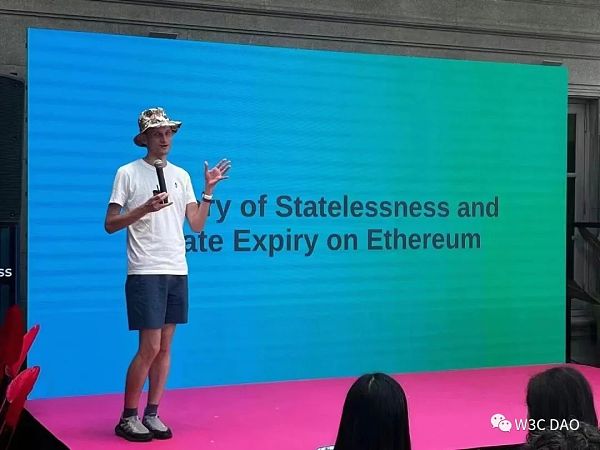
Policy
- Sovereignty vs Society The Contradictory Relationship Between Individual Freedom and Social Dependence
- How to Prove a Secret A Guide to Zero-Knowledge Proofs from Magicians
- Dune SQL and Ethereum Data Analysis Advanced Guide
Policy is an important factor affecting the development of Web3, including legal norms and regulatory measures for cryptocurrencies, blockchain, digital identity, etc. A friendly and stable policy environment can provide clear guidance and protection for Web3 projects, promoting innovation and compliance.
Policy is an important factor affecting the development of Web3, including legal norms and regulatory measures for cryptocurrencies, blockchain, digital identity, etc. A friendly and stable policy environment can provide clear guidance and protection for Web3 projects, promoting innovation and compliance.
Singapore has always maintained an open and forward-looking attitude towards policies, providing support and encouragement for innovation in the financial and technology fields. The Monetary Authority of Singapore (MAS) has specifically provided a “regulatory sandbox” policy for fintech innovation and entrepreneurship enterprises with blockchain, metaverse, and Web3.0 technologies as their core. If any financial innovation cannot be accommodated within the existing legal framework or temporarily cannot fully meet the compliance requirements of regulatory agencies, MAS will still allow these enterprises and startups to conduct experiments in Singapore.
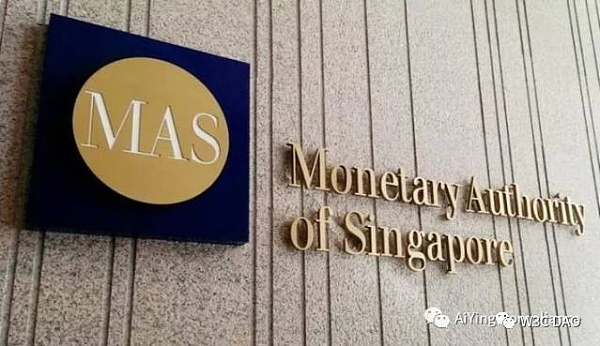
In addition, MAS has also formulated the “Payment Services Act,” issuing licenses to market participants and strengthening the system for protecting consumers in this field. MAS also collaborates with international organizations and other countries to promote the formulation and coordination of standards in cross-border payments, digital currency exchanges, digital identity authentication, and other areas.
Although Hong Kong is also an international financial center, it is relatively conservative and cautious in terms of policies. The Hong Kong SAR government issued a policy statement on the development of virtual assets in Hong Kong at the end of 2020, demonstrating an open attitude and firm determination towards innovation in virtual assets.
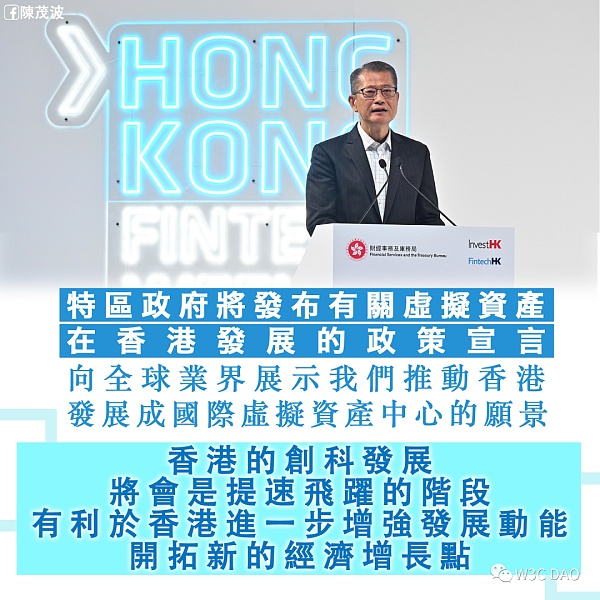
In recent months, many leading technology companies and high-tech startups have actively contacted the SAR government and considered expanding their business in Hong Kong. These companies cover virtual asset exchanges, blockchain infrastructure companies, virtual currency wallets and payment companies, and other projects related to Web3.0. However, Hong Kong has implemented relatively strict regulatory requirements for virtual asset exchanges, including the need to obtain a license from the Securities and Futures Commission, only providing services to professional investors, and not being able to provide derivative products or security token offerings. These restrictions may affect Hong Kong’s competitiveness and attractiveness in the Web3 field.
In summary, although Singapore is relatively more liberal in terms of policies compared to Hong Kong, Hong Kong pays more attention to providing a more flexible and inclusive environment for Web3 projects, while also ensuring market stability and consumer interests.
Talent
Talent is the core resource for the development of Web3, including technical developers, entrepreneurs, managers, advisors, etc. These talents come from both local and global sources, forming a diverse and international Web3 community.
Singapore has better talent resources, thanks to its high-quality education system, diverse cultural background, convenient visa policies, and good quality of life. Singapore has world-class universities such as Nanyang Technological University (NTU) and National University of Singapore (NUS), which have nurtured a large number of technology talents. Singapore also attracts talents from around the world, including experts and leaders in the Web3 field. Singapore provides various types of visas for foreign talents, such as the Entrepreneur Pass (EntreLianGuaiss) and the Technology Talent Pass (Tech.Pass), making it convenient for them to start businesses and work in Singapore. Singapore also offers high-quality public services such as healthcare, education, and transportation, as well as a safe, clean, and comfortable living environment, allowing talents to live and develop in Singapore with peace of mind.
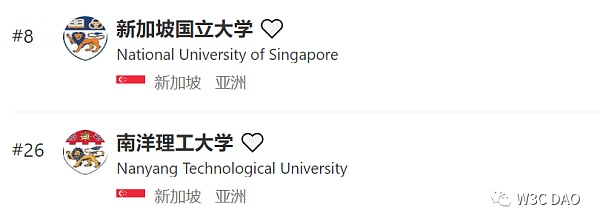
Although Hong Kong is also an international city with many local and foreign Web3 talents, it still faces some challenges in terms of talent. Firstly, Hong Kong’s education system is relatively conservative, lacking education and training in Web3-related technologies and knowledge. Secondly, Hong Kong has also launched some talent policies in recent years to support talents, such as the Quality Migrant Admission Scheme. This is a quota-based program with an annual quota of 4,000 people, aimed at attracting outstanding talents from overseas to settle in Hong Kong. However, this program also has some limitations and uncertainties, such as limited quotas, complex application process, and unpredictable selection results.
In summary, Singapore has advantages in terms of talent compared to Hong Kong. It can cultivate and attract more Web3 talents and provide them with a more suitable environment for innovation and development. Although Hong Kong also has some talent policies support, it still needs to improve its education system and talent policies in order to enhance its competitiveness and attractiveness in the Web3 field.
Cost of Living
The cost of living is an important factor influencing the choice of residence for Web3 practitioners, including expenses for food, housing, transportation, education, etc. A lower cost of living allows Web3 practitioners to have more funds for project development and operation, and can also improve their quality of life and happiness.
Singapore and Hong Kong are both economically developed cities with relatively high cost of living. According to the latest data released by the global database website Numbeo, Singapore and Hong Kong rank 5th and 16th respectively in terms of cost of living among 138 countries or regions worldwide.
According to Mercer’s 2023 Global City Cost of Living Ranking, the average rent in Singapore is $2,500 USD (about 16,000 RMB) per month, while the average rent in Hong Kong is $3,700 USD (about 23,700 RMB) per month. Hong Kong has the highest rent in the world, while Singapore ranks eighth.
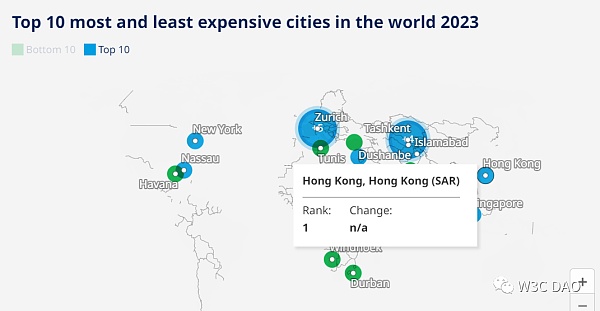
According to the latest data released by the global database website Numbeo, the food prices in Singapore are lower than those in Hong Kong, and the options are more diverse. Singapore has many hawker centers where you can enjoy a variety of delicacies at affordable prices, with an average cost of 3-5 SGD (about 15-25 RMB) per meal. Hong Kong also has many dai pai dongs, but the prices are relatively high, with an average cost of 30-40 HKD (about 25-35 RMB) per meal. The prices of grocery ingredients in Singapore supermarkets are slightly lower than those in Hong Kong, with a monthly expense of about 200-300 SGD (about 1,000-1,500 RMB). The prices of grocery ingredients in Hong Kong supermarkets are higher, with a monthly expense of about 300-400 HKD (about 250-350 RMB).
In addition, it is reported that the cost of daily necessities, clothing, cosmetics, and entertainment in Singapore and Hong Kong is not significantly different. However, Hong Kong does not have a consumption tax, often offers discounts, and has more choices, which may be cheaper than Singapore.
In summary, Singapore and Hong Kong have their own advantages and disadvantages in terms of cost of living, which depend on individuals’ income levels, lifestyles, and consumption habits.
Future Development
Future development refers to the potential and prospects of the Web3 field, including technological innovation, market demand, social impact, and other aspects. Favorable future development can motivate and attract more Web3 practitioners to join and contribute, and can also enhance the value and significance of the Web3 field.
Singapore and Hong Kong both have good opportunities and challenges in terms of future development, mainly in the following aspects:
Singapore is mainly due to its stable and supportive policy environment, as well as its superior and convenient geographical location. As a neutral and open country, Singapore can establish trust and connections with Web3 partners from around the world, and promote cross-border and cross-chain collaboration and interoperability.
However, Singapore also faces some challenges in terms of future development, mainly due to its small population size and weak competitiveness, as well as its dependence and sensitivity to external factors. As a small country, Singapore has limited domestic market demand, and its talent resources are not sufficient to support the rapid development of the Web3 field. Singapore is also influenced by global economic, political, and social factors, and may encounter unpredictable and uncontrollable risks and crises.
Hong Kong also has some advantages in future development, mainly due to its strong and professional financial strength, as well as its relationship and interaction with mainland China. As an international financial center, Hong Kong can provide abundant and efficient funds, services, and products for the Web3 field, supporting the growth and expansion of Web3 projects.
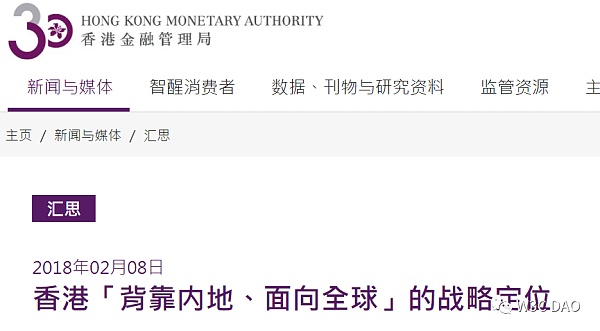
In addition, Hong Kong, as a special administrative region of China, can maintain close and friendly relations with mainland China and participate in the innovation and development of Web3 in China.
In summary, Singapore and Hong Kong both have their own opportunities and challenges in future development. It depends on how they respond to changes in the external environment and how they leverage their own advantages to create more value.
Summary
This article compares and analyzes Singapore and Hong Kong in the Web3 field, discussing the advantages and disadvantages of these two cities from the perspectives of policies, talent, cost of living, and future development.
The article points out that Singapore is more open and free in terms of policies, promoting innovation and compliance. Singapore also has better talent resources, benefiting from its high-quality education system, convenient visa policies, and good quality of life. However, Singapore also faces challenges such as a small population size, weak competitiveness, and dependence and sensitivity to external factors.
Although Hong Kong is relatively conservative and cautious in terms of policies, it also demonstrates an open attitude towards innovation in virtual assets and has a firm determination. Hong Kong also has strong and professional financial strength, as well as close and friendly relations with mainland China. However, Hong Kong is also plagued by issues such as high rent, conservative education, and limited market demand.
In conclusion, Singapore and Hong Kong both have their own opportunities and challenges in the Web3 field. It depends on how they respond to changes in the external environment and how they leverage their own advantages to create more value.
We will continue to update Blocking; if you have any questions or suggestions, please contact us!
Was this article helpful?
93 out of 132 found this helpful
Related articles
- The Core Function of Data Availability in Layer2
- Consensys Global Survey How is Web3 perceived around the world?
- Understanding the Account Abstraction That Determines the Future of Web3 in One Article
- CertiK Security Report Nearly 1 billion USD will be stolen in 2023 due to fraud, vulnerability exploitation, and hacker attacks.
- Doodles version of the holey shoes sold out in 3 days, blue-chip NFTs sell to save themselves.
- With the innovative low transaction volume, where is the way out for NFTs?
- After Vitalik’s account was hacked, he released phishing information. Besides phishing attacks, what other ways of fund fraud should users be alert to?





